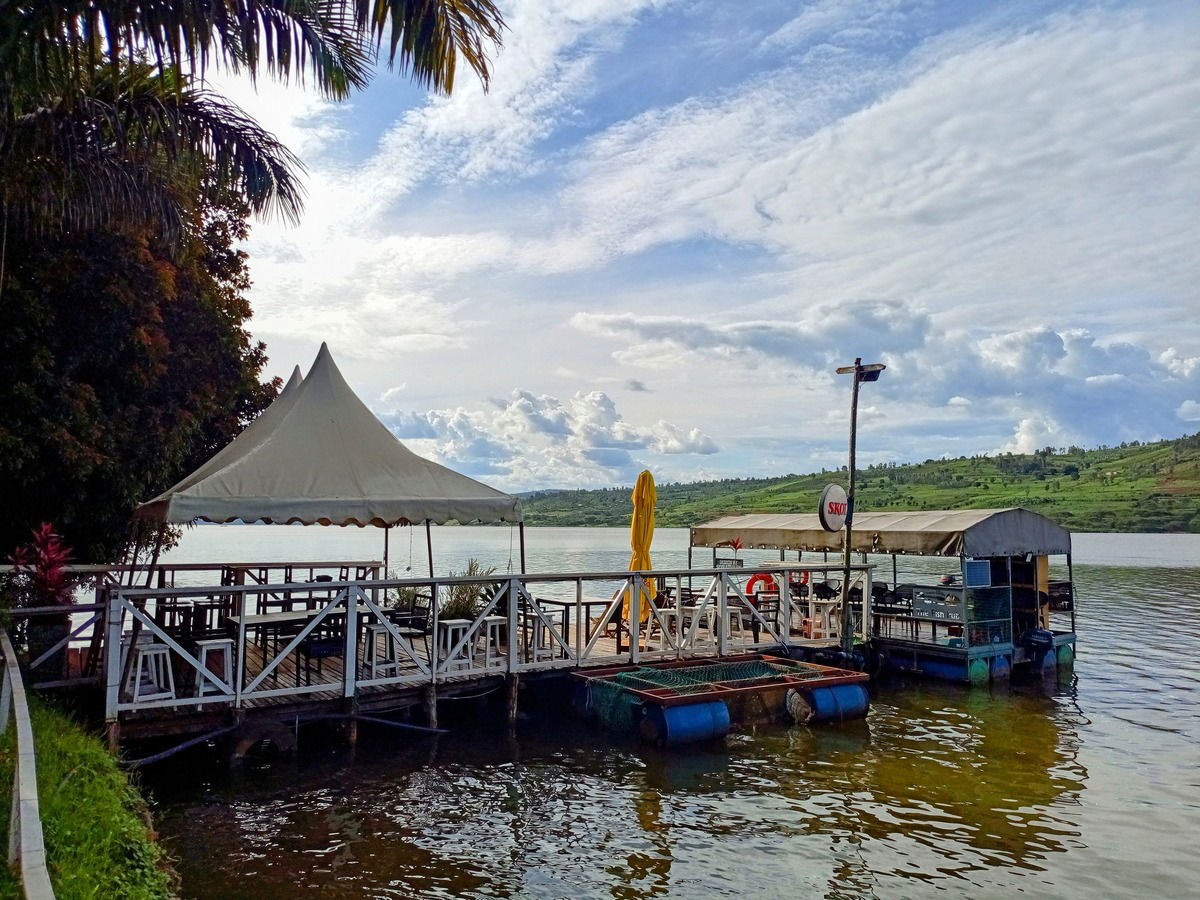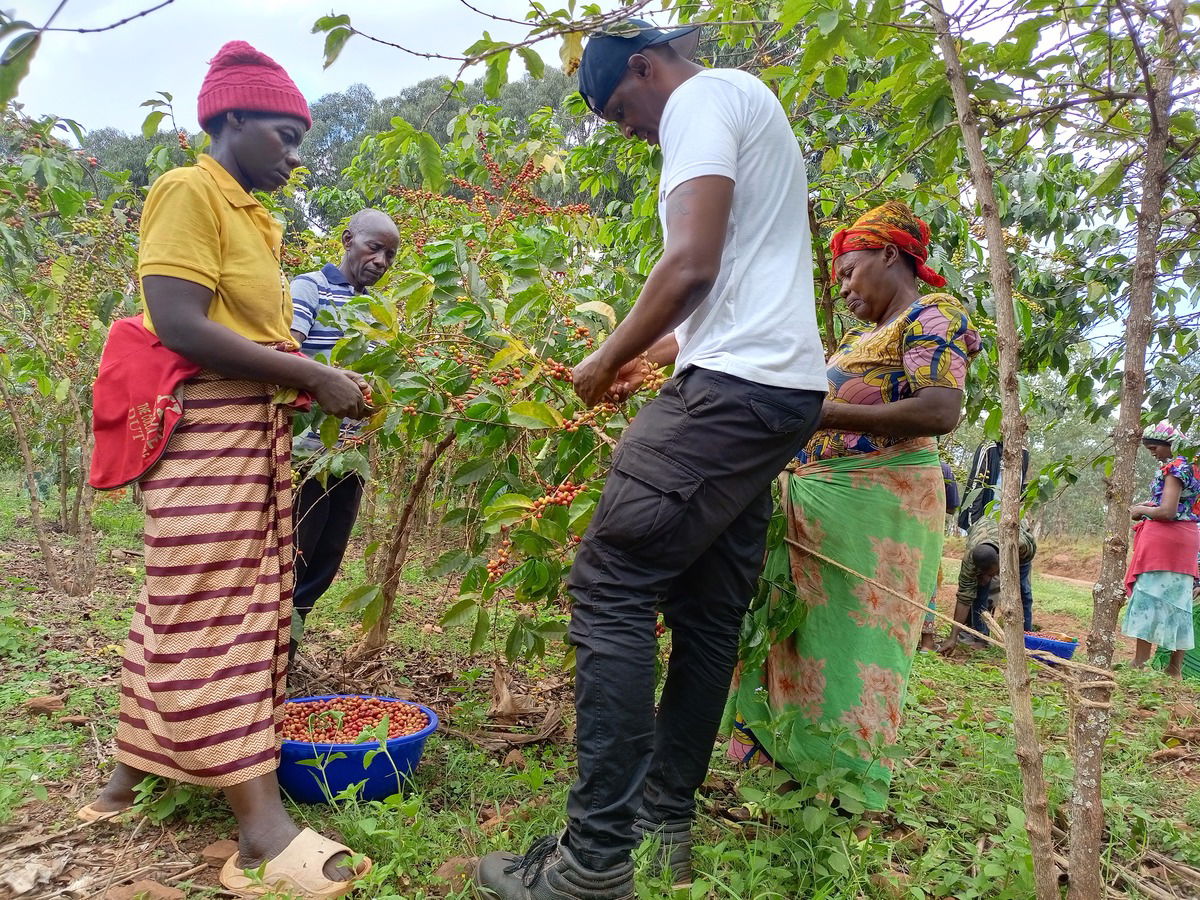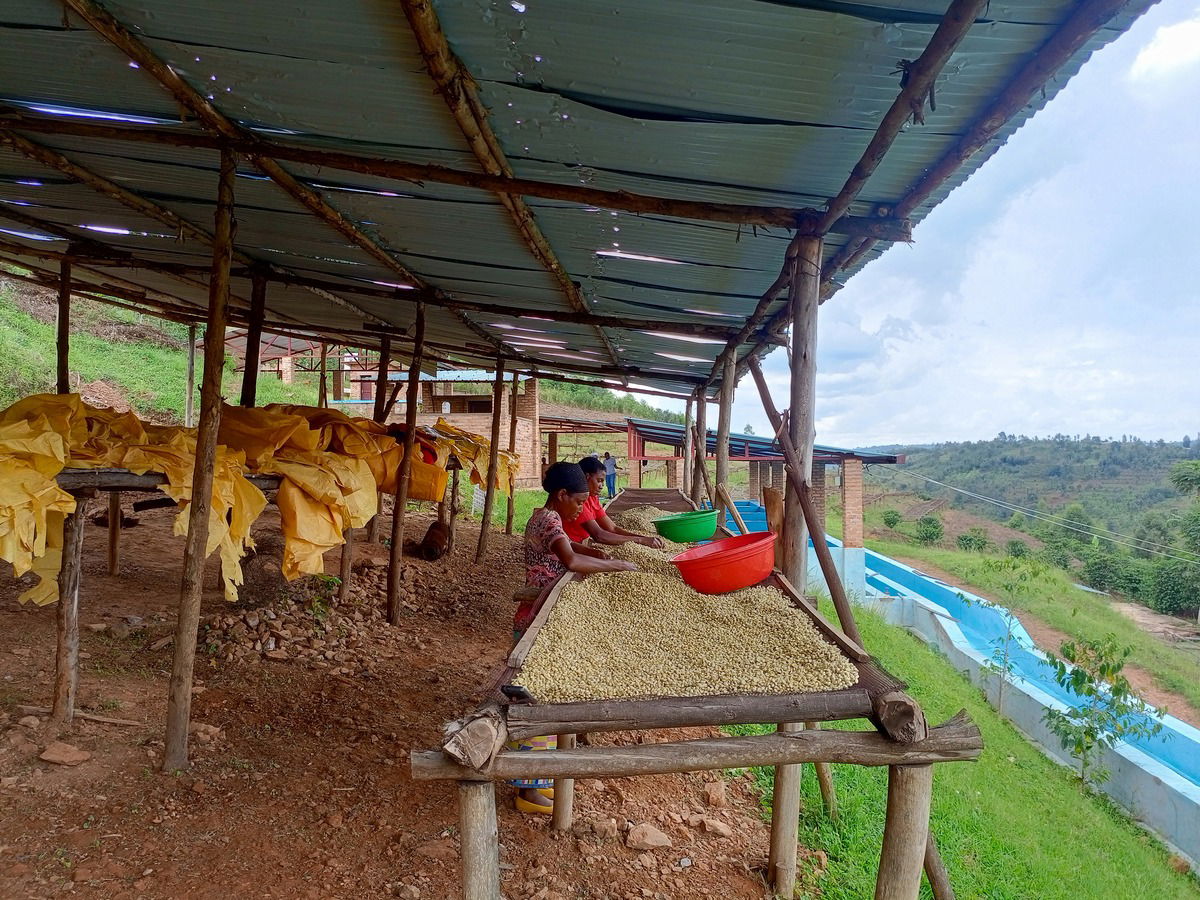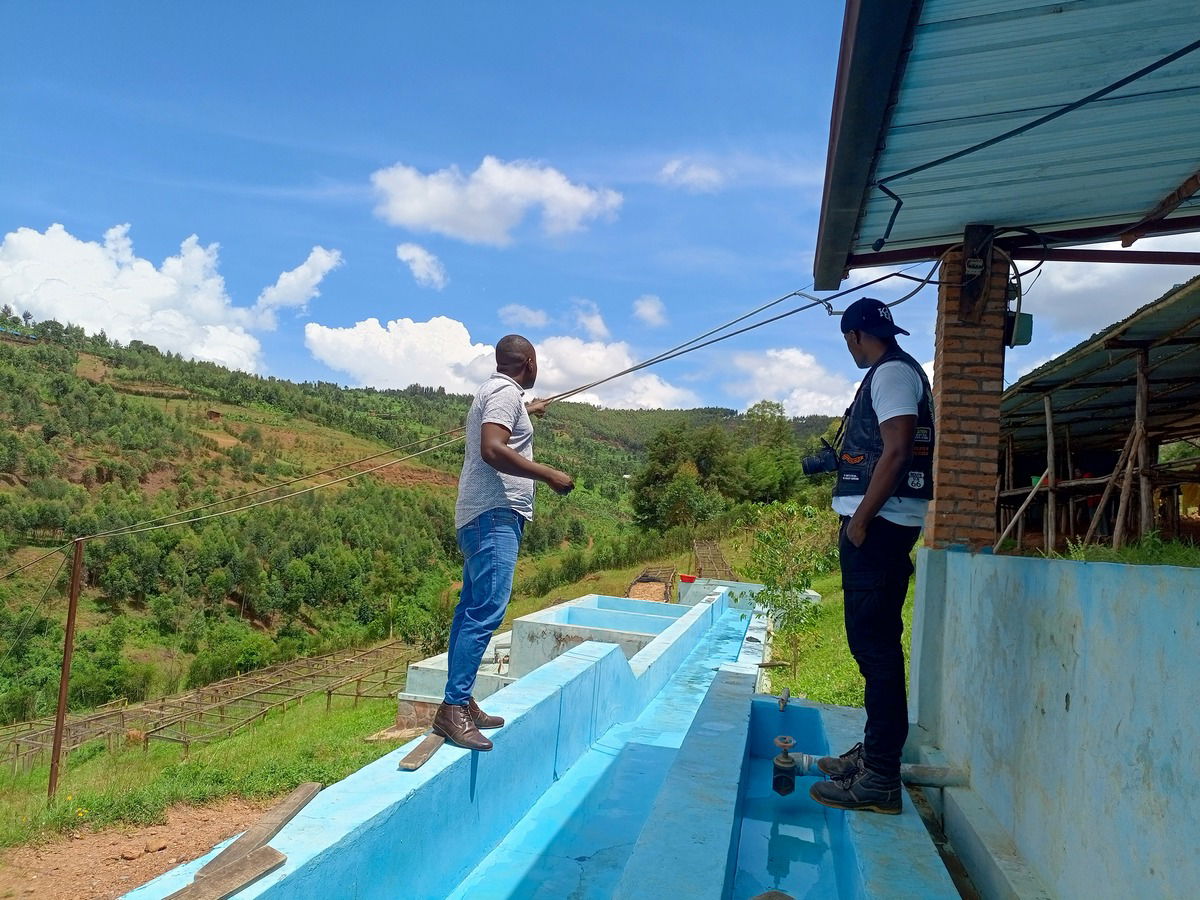From the Muhazi Belt to the World: My Coffee Odyssey
In my last post, I mentioned that I was leaving Musha and heading further east toward Gishari. But before diving into the next chapter of exploration, I made a delicious detour—lunch at The Fish Pub. It was a fitting spot, perched right before I began tracing the next slender arm of this uniquely contoured lake. This part of Muhazi is particularly captivating, with off-shoots curling away like curious little fingers reaching into the land.
After an exhilarating sightseeing ride capped by yet another breathtaking sunset, I had to observe a self-imposed travel policy: no riding after the sun goes down. So I added an extra night in the area—no complaints there. I'm not in a rush anyway. This journey isn’t about speed; it’s about immersion.
Every day spent in Musha Sector added a layer to my appreciation for this place—sunset cruising, kayaking through the lake’s playful ripples, hiking scenic trails, fishing, and joining community-based excursions that peeled back the surface to reveal the vibrant pulse beneath. One such encounter led me to a realization that coffee in not just a crop. It's a way of life.

Before diving into the next chapter of exploration, I made a delicious detour—lunch at The Fish Pub. It was a fitting spot, perched right before I began tracing the next slender arm of this uniquely contoured lake.
A good number of families along this stretch tend to coffee trees as part of their livelihood. In a bid to understand the rhythm of their days—and the roots of my favorite aromatic companion—I took the opportunity to work in their 'office': a sun-kissed coffee farm nestled in the hills that cradle the lake.
If you've been following my chronicles, you know this already: my relationship with coffee is nothing short of sacred. It’s not just a drink—it’s a ritual, a muse, a morning whisper that sets the tone for everything else. So when the chance arose to trace it back to its source, I didn’t think twice.
It was a golden morning when I walked between the tidy rows of coffee trees with my gracious hosts. The air was crisp, infused with the earthy scent of warm soil and dew-kissed leaves. My instructors—seasoned farmers with wisdom etched into their hands—taught me how to identify the ripe cherries: deep red, full of promise. We plucked slowly, methodically, filling our baskets under the rising sun.

In a bid to understand the rhythm of their days—and the roots of my favorite aromatic companion—I took the opportunity to work in their 'office': a sun-kissed coffee farm nestled in the hills that cradle the lake.
With my hands bearing juicy-stains from the cherries and a fulfilled heart, I paused to take it all in. There’s a quiet satisfaction in participating in a cycle I usually only meet at the final sip. That morning made me reflect on how rarely we think about the hands and hours behind the things we enjoy. Yet here, in the rural folds of Rwamagana, coffee isn’t just brewed—it’s grown with intention and nurtured with pride.
From there, the next step on my caffeinated quest was clear: follow the cherry. I made my way to the nearby Mununu Washing Station, a modest yet vital hub where the journey of the coffee bean continues. Owned and operated by Viva Coffee, the station works hand-in-hand with local farmers to bring their hard-earned harvest to life.
There, I had the privilege of meeting Mr. Emmanuel Gatare, the passionate investor behind Viva Coffee. His dedication to Rwanda’s coffee industry runs deep, and our conversation quickly turned into an impromptu masterclass. Listening to him talk, I was reminded again that every cup of coffee is part of a vast, interconnected ecosystem—of land, labor, knowledge, and love.

Owned and operated by Viva Coffee, the station works hand-in-hand with local farmers to bring their hard-earned harvest to life.
Later, I was introduced to the station manager, Aimable Uwizeyimana, a calm and knowledgeable guide who generously walked me through each step of the intriguing processing flow. I will breakdown what I learned here in one of my upcoming posts. Spoiler alert: it’s a perfect blend of science and tradition.
What struck me most throughout this experience was the sense of continuity. From farmer to processor, there's a shared commitment to quality and care. This isn’t just a production line—it’s a partnership. Each step is taken with intention, each person a custodian of the bean’s journey.
As I left the station, I was glad I went off my original script and added a coffee experience to my flexible itinerary. What began as a curiosity-driven outing had become a richer, deeper understanding of a community, a culture, and a crop. When I finally left Musha, I carried with me not only the flavor of Rwandan coffee, but also the stories of those who make it possible: the rhythm of their days, the gifts of their hands, and the spirit of their land.

Later, I was introduced to the station manager, Aimable Uwizeyimana, a calm and knowledgeable guide who generously walked me through each step.